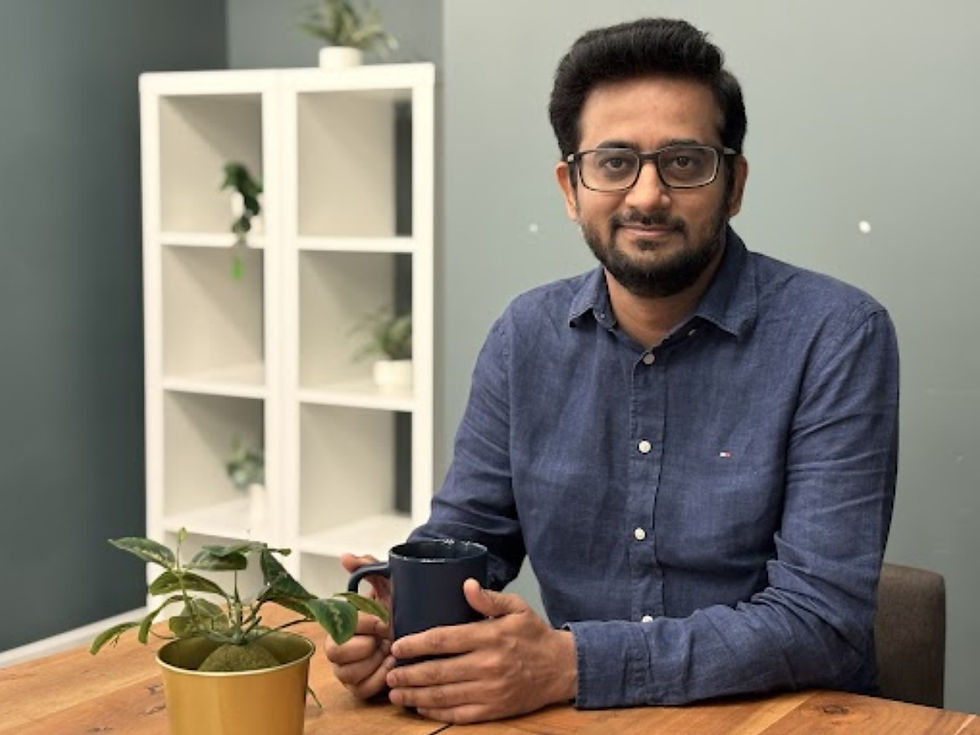Get to Know | Andel Koester
- Dave Henry
- May 16, 2022
- 3 min read
Updated: Jul 18, 2022
As a director at Karp Strategies, Andel leads the firm’s work with Equinor, a global energy company developing one of the U.S.’s most significant OSW projects. In true KStrat fashion, Andel approaches her day-to-day client and team management from a multi-faceted perspective, driven by her previous work with Bloomberg Philanthropies and the civic tech start-up, mySidewalk. Andel’s work is grounded in data and a belief that evidence-based policy must be the answer to society’s most pressing challenges. And if you’re ever in the market for a theater recommendation, Andel should be your first call.

What drew you to public policy in the first place?
Solving big public problems is all I’ve ever wanted to do! My specific interests have changed over time: early on, I thought I’d be a diplomat or an international human rights lawyer; instead, I ended up advising local governments and big corporations. Ultimately I’m interested in wrestling with complex, interconnected issues and finding new tools and ways to collaborate with communities to solve them.
What excites you most about the work you are doing—and specifically OSW?
What motivates me is the opportunity to fundamentally transform how organizations -- no matter what sector they’re in --work to make the world a more equitable and sustainable place. I was new to offshore wind when I joined Karp Strategies, but what drew me to it is the dual opportunity to meet big climate goals while launching a new industry in the U.S. It’s an opportunity to radically rethink how corporations (such as developers or suppliers) collaborate with and invest in communities.
You have worked on many private-sector/public sector partnerships, specifically private companies operating in the public sphere. What lessons did you learn from those you bring to your current work?
I strongly believe that no sector has a monopoly on good ideas. Working with corporations, it’s clear to me that they have tremendous assets -- expertise, influence, data, technology, and, yes, funding -- that could be deployed to help solve public problems. The challenge is in connecting those resources to the right problems, which is harder than it appears. I see my role as challenging my clients to engage deeply and authentically with the communities in which they operate.
Why is data and evidence-based policy important?
It’s about making more informed decisions that result in better outcomes for communities. The alternative is when nonprofits deliver the same services they always have, or companies roll out the same product as before, or governments cater to the same, most vocal communities. One example of this is public bus routes: in too many cities(including NYC), they have been the same for decades. When transit leaders use data to analyze economic activity and community profiles, they can redraw the routes to connect people to the jobs and services they actually need today. Bringing data and evidence is an opportunity to better diagnose the problem and target our actions, which increases the likelihood that we’ll make a positive impact where it’s needed most.
How did you become fluent in Spanish, German, and French, as well as English?
I am half Mexican and half-German; I was born in Mexico City, and Spanish is my first language. My family immigrated to the U.S. when I was very young, but my parents saw language as an important way to connect us to our heritage, so they made a wise point of making sure we kept up our Spanish and German at home. I studied French from middle school through college and lived with a family in Lyon for a bit, and in general, I think my brain was already wired to pick it up easily!




Comments